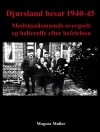Demographic study and the idea of a “population” was developed and modified over the course of the twentieth century, mirroring the political, social, and cultural situations and aspirations of different societies. This growing field adapted itself to specific policy concerns and was therefore never apolitical, despite the protestations of practitioners that demography was “natural.” Demographics were transformed into public policies that shaped family planning, population growth, medical practice, and environmental conservation. While covering a variety of regions and time periods, the essays in this book share an interest in the transnational dynamics of emerging demographic discourses and practices. Together, they present a global picture of the history of demographic knowledge.
Inhoudsopgave
List of Figures
Notes on Contributors
Introduction: Counting, Constructing, and Controlling Populations: The History of Demography, Population Studies, and Family Planning in the Twentieth Century
Corinna R. Unger and Heinrich Hartmann
Part I: Producing Demographic Subjects: Transnational Discourses
Chapter 1. The View From Below and the View From Above: What U.S. Census-taking Reveals about Social Representations in the Era of Jim Crow and Immigration Restriction
Paul Schor
Chapter 2. “Reproduction” as a New Demographic Issue in Interwar Poland
Morgane Labbé
Chapter 3. Family Planning: A Rational Choice? The Influence of Systems Approaches, Behavioralism, and Rational Choice Thinking on Mid-Twentieth Century Family Planning Programs
Corinna R. Unger
Chapter 4. “Overpopulation” and the Politics of Family Planning in Chile and Peru: Negotiating National Interests and Global Paradigms in a Cold War World
Jadwiga E. Pieper Mooney
Chapter 5. Revisiting the Early 1970s Commoner-Ehrlich Debate about Population and Environment: Dueling Critiques of Production and Consumption in a Global Age
Thomas Robertson
Part II: Demographic Knowledge in Practice: Transfers and Transformations
Chapter 6. “Counting People”: The Emerging Field of Demography and the Mobilization of the Social Sciences in the Formation of Policy, South Korea since 1948
John Paul Di Moia
Chapter 7. Laparoscopy as a Technology of Population Control: A Use-Centered History of Surgical Sterilization
Jesse Olszynko-Gryn
Chapter 8. A Twofold Discovery of Population: Assessing the Turkish Population by its “Knowledge, Attitudes and Practices”, 1962-1980
Heinrich Hartmann
Chapter 9. Seeing Population as a Problem: Influences of the Construction of Population Knowledge on Kenyan Politics (1940s to 1980s)
Maria Dörnemann
Chapter 10. Filtering Demography and Biomedical Technologies: Melanesian Nurses and Global Population Concerns
Alexandra Widmer
Index
Over de auteur
Corinna R. Unger is Professor of Global and Colonial History (19th and 20th centuries) at the European University Institute in Florence, Italy.












